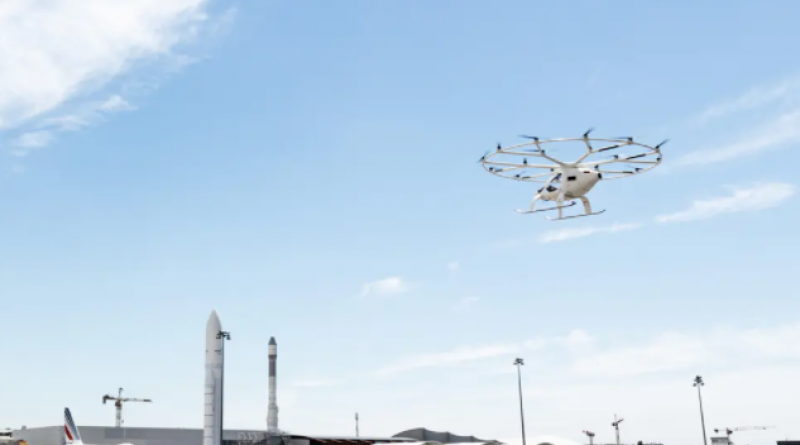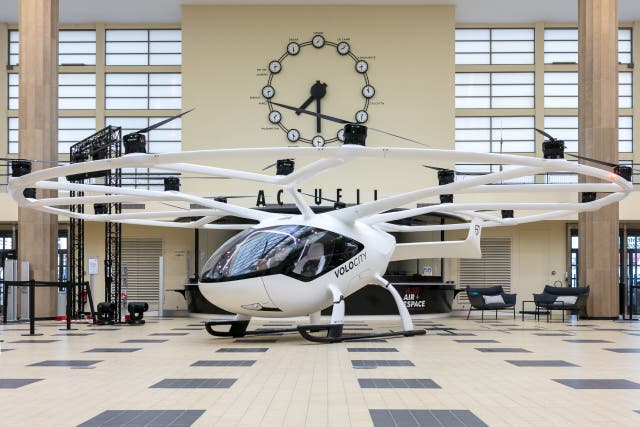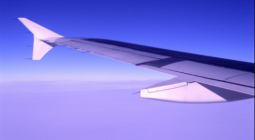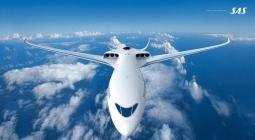Emissions-free, flying taxis planned for 2024 Olympics in Paris

German start-up says the Volocopter is much quieter and need less maintenance than a traditional helicopter - along with having no carbon emissions
An electric-powered flying taxi, which was demonstrated at a Paris air show on Monday, will be ready for passengers by the 2024 Olympics in the French capital, creators say.
The VoloCity air taxi looks like a tiny helicopter with two seats and is topped by 18 rotors fixed to a large circle.
It took off and landed vertically on the Le Bourget Airfield at the Paris Air Forum during a three-minute, remote-controlled flight with no passengers onboard.
The emissions-free, flying taxi completed a 1,640 feet (500m) route at up to 18 miles per hour (30 kph), climbing nearly 100ft (30m) above the airfield, the company said.
Volocopter CEO Florian Reuter said the urban mobility market was “gigantic”.
“Urban mobility is a more than 10 trillion dollar market,” Mr Reuter said. “We estimate that, by 2035, we can serve a market that has around 300 billion dollars in opportunity.”

(Volocopter)
He added that Volocopter is committed to bringing air taxi services to Paris in time for the 2024 Olympic Games.
The German start-up is working with the French Civil Aviation Authority to bring electric air taxis to the Île-de-France region.
Edward Arkwright, deputy CEO of Groupe ADP, a Volocopter partner, called it “a vivid example of what the futures of aviation could look like, both carbon-free and innovative”.
The company says that the Volocopter will be much quieter and need less maintenance than a traditional helicopter. It doesn’t currently plan to sell single Volocopters but aims to provide a public transport service for approximately the cost of a ride in an Uber Black.
The company has several models in the works. “VoloCity” for journeys within cities; “VoloConnect” for longer journeys between urban centres and the suburbs; and “VoloDrone” for cargo transport. The plan is to connect all these via take-off and landing sites called “VoloPorts” with a fully-integrated digital platform called “VololQ”.
Volocopter is also working to bring its flying taxis to Singapore and Dubai.
The aviation industry is facing a reckoning over its role in global carbon emissions which are heating the planet.
CO2 emissions from aviation have soared in the past 20 years, amounting to around 2.8 per cent of global emissions from fossil fuel combustion, according to the International Energy Agency. The number of flights being taken are expected to increase significantly in the coming decades.
While improvements in tech and infrastructure have made flying more efficient, the industry is under pressure to further reduce its footprint. Airlines are exploring greater use of “advanced waste” biofuels (from used cooking oil, industrial waste and agricultural runoff) over traditional jet kerosene, along with synthetic fuels.
Flights could also be powered by hydrogen or batteries in the future but there remains significant technological hurdles, and the cost may prove prohibitive. Airbus aims to develop the world’s first zero-emission commercial aircraft by 2035.
22 June 2021
INDEPENDENT





